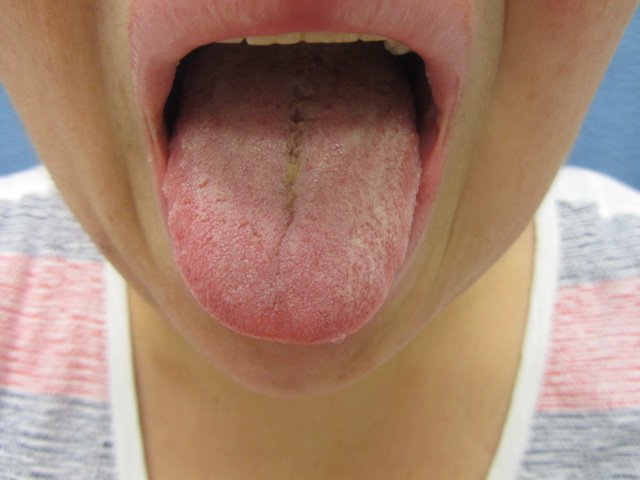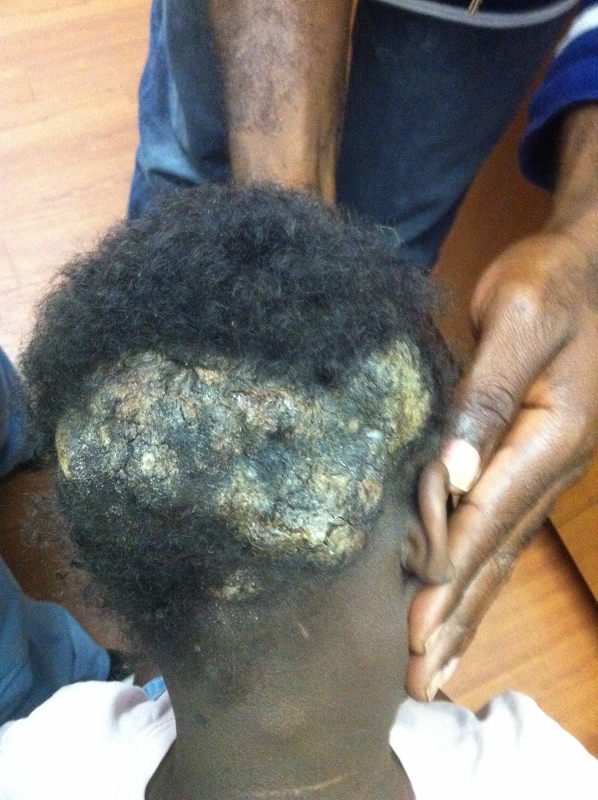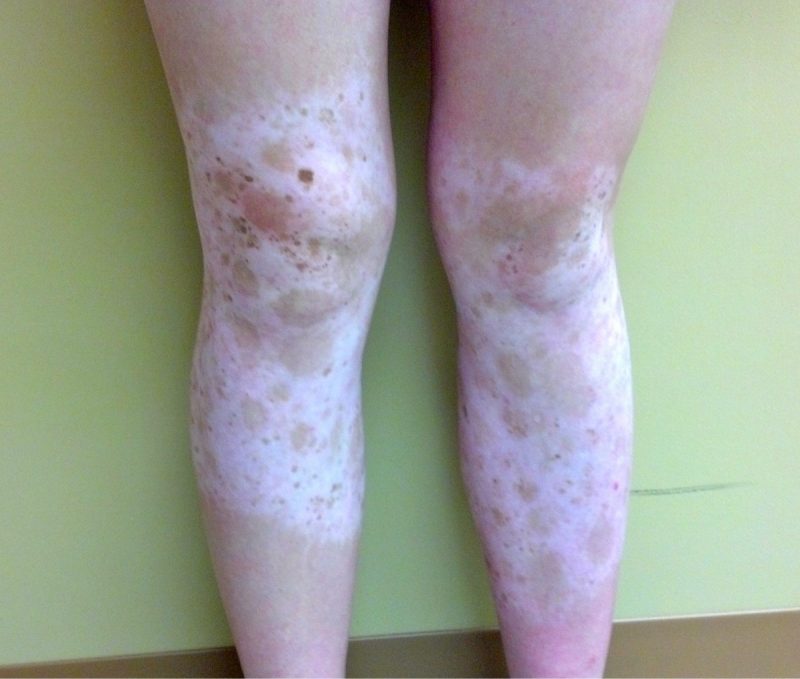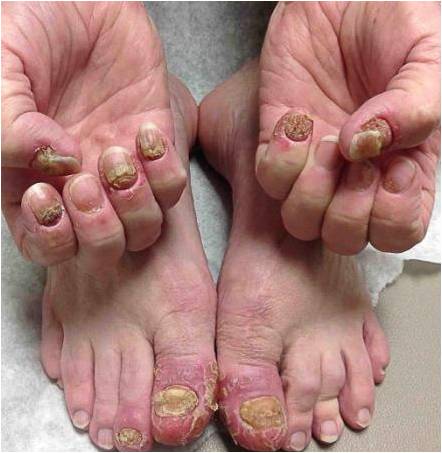CORRECT DIAGNOSIS:
Melkersson-Rosenthal Syndrome
DISCUSSION:
Melkersson-Rosenthal Syndrome (MRS) is a rare disorder characterized as a triad of relapsing orofacial edema, recurrent facial paralysis, and a fissured tongue. Since most patients do not exhibit all three symptoms, oligosymptomatic or monosymptomatic forms of MRS are usually seen. Granulomatous cheilitis is considered to be a monosymptomatic form of MRS. The orofacial swelling can manifest as reddish-brown, swollen, fissured, nonpruritic lips with scaling or firm edema of one side of the face. The upper lip is usually involved more than the lower lip. Recurrent attacks can range from days to years. Permanent changes causing facial enlargement may occur due to chronic swelling of the tissue and fibrosis. The facial nerve palsy can be indistinguishable from Bell’s palsy. Patients may show loss of taste and decreased salivary gland secretion. Other cranial nerves can also become affected including the olfactory, vestibulocochlear, glossopharyngeal, and vagus nerve. The fissured tongue can be seen in 20-40% of patients. Few cases have reported chronic eye-lid swelling occurring in MRS.
The etiology and pathogenesis of MRS remain unknown. Genetic inheritance, hypersensitivity reactions, and chronic infections have been suggested as possible causes. Granulomatous cheilitis may be associated with sarcoidosis and Crohn’s disease. It is therefore prudent to work up any gastrointestinal or pulmonary symptoms. It remains unclear as to the percentage of patients with granulomatous cheilitis who will develop Crohn’s disease. On histopathology, MRS shows focal non-caseating epitheliod cell granulomas with perivascular lymphocytic inflammation.
TREATMENT:
Treatment remains challenging as this disease waxes and wanes due to an unknown trigger. Providing symptomatic relief, preventing permanent lip deformity, and close monitoring for any underlying disease associations are integral to the management of these patients. Oral antihistamines, cold compresses, and topical corticosteroids can be used in patients to help reduce swelling. Intralesional corticosteroids can reduce swelling found in granulomatous cheilitis. Systemic corticosteroids have been beneficial in some patients with orofacial edema. Clofazaimine, metronidazole, tetracyclines, and biologics have been used successfully in other case reports. Most recently, azithromycin pulse therapy has been used to treat 5 patients. Surgical intervention or cheiloplasty may be needed in patients who suffer from chronic lip deformity secondary to persistent swelling. Facial nerve decompression has also been used to treat persistent facial paralysis. Most recently, azithromycin pulse therapy (500mg daily for three consecutive days per week) has been used successfully to treat 5 patients with granulomatous cheilitis. We placed our patient on Azithromycin pulse therapy and she has responded well.
REFERENCES:
Cockerham, K., Hidayat, A. A., Cockerham, G. C., et al. (2000). Melkersson-Rosenthal syndrome: New clinicopathologic findings in 4 cases. Archives of Ophthalmology, 118(2), 227-232. https://doi.org/10.1001/archopht.118.2.227
Van de Scheur, M. R., Van der Waal, R. I., Volker-Dieben, H. J., et al. (2003). Orofacial granulomatosis in a patient with Crohn’s disease. Journal of the American Academy of Dermatology, 49(5), 952-954.
Yadav, S., Dogra, S., De, D., & Saikia, U. (2015). Orofacial granulomatosis responding to weekly azithromycin pulse therapy. JAMA Dermatology, 151(2), 219-220.




